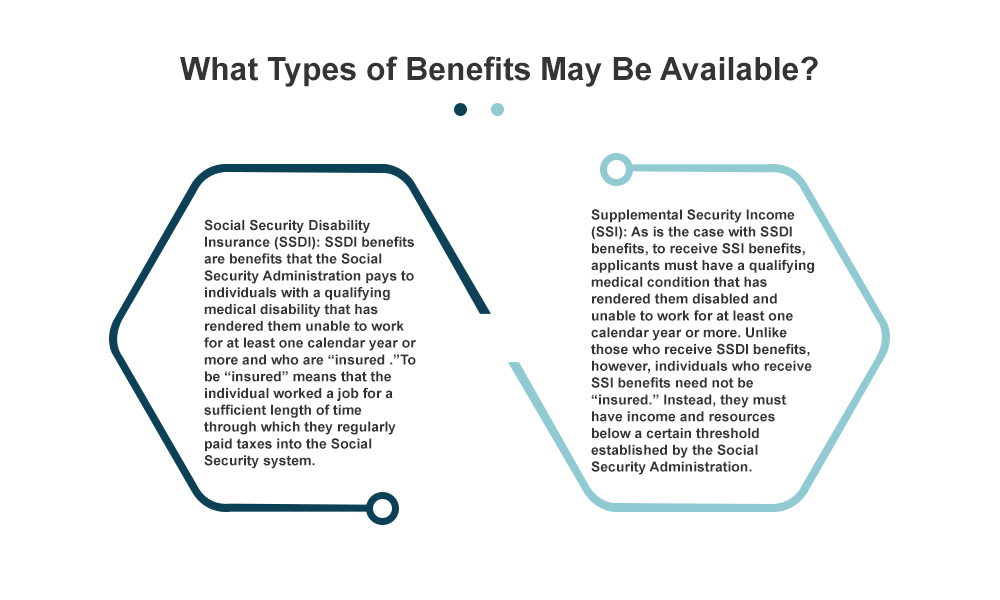If you or someone you love is living with autism, you may wonder about your legal rights. Is autism considered a “disability” for legal purposes? Will you be entitled to disability benefits from the Social Security Administration? If so, how much might you receive in disability benefits? All of these questions are reasonable and important questions to ask. After all, a condition like autism is lifelong and, in some cases, can require extensive, ongoing care.
Is Autism a Disability?
The good news is that from a legal perspective, the short answer to this question is “yes.“ If it can be conclusively established that an individual has autism, they may qualify for disability benefits from the Social Security Administration.
Generally, one of the first steps in determining whether an individual qualifies for disability benefits is determining whether or not they do, in fact, have a qualifying medical condition. To make this determination, the Social Security Administration will often consult its Blue Book, which is a guide that includes qualifying medical conditions and accompanying symptoms. Autism is a condition that is included in the Social Security Administration’s list of qualifying conditions.
More formally known as autism spectrum disorder (ASD) is a developmental disorder that typically first appears in the early childhood years. It is a complex condition that can manifest itself in various ways. It is generally characterized by difficulties with communication and social interaction. It also often includes extreme sensitivity to touch, bright lights, loud sounds, or strong smells, as well as repetitive behaviors and intense fixations on particular interests. Symptoms can vary widely, and each individual’s condition will be unique. Various conditions, including Asperger Syndrome (AS) and Pervasive Developmental Disorder (PDD), are also within the autism spectrum.
Those who can establish through sufficient medical evidence that they have autism and that the condition has rendered them unable to work for at least one calendar year or more may qualify for benefits.

What Types of Benefits May Be Available?
It is essential to understand that the Social Security Administration generally offers two types of disability benefits, which include:
- Social Security Disability Insurance (SSDI): SSDI benefits are benefits that the Social Security Administration pays to individuals with a qualifying medical disability that has rendered them unable to work for at least one calendar year or more and who are “insured .”To be “insured” means that the individual worked a job for a sufficient length of time through which they regularly paid taxes into the Social Security system.
- Supplemental Security Income (SSI): As is the case with SSDI benefits, to receive SSI benefits, applicants must have a qualifying medical condition that has rendered them disabled and unable to work for at least one calendar year or more. Unlike those who receive SSDI benefits, however, individuals who receive SSI benefits need not be “insured.” Instead, they must have income and resources below a certain threshold established by the Social Security Administration.
Determining which type of benefits an autistic individual might receive is the first important step of the process.
How Much Will You Receive?
Generally, all SSI recipients have a monthly payment that starts at a “total benefit amount” that is then lowered by their “countable income .”In 2023, the full federal monthly benefit is $914 for an individual and $1371 for a couple. This is the maximum amount that an individual might receive, and it is lowered based on other income that is received by the individual (or in the case of a child, by the child’s parents or caregivers).
In the case of SSDI benefits, benefit amounts are typically determined based on an individual’s work history, including their salary, and how long they paid taxes into the Social Security system. As a result, many individuals with autism do not qualify for SSDI benefits because they need to have an established work history. Typically, autism is a lifelong, ongoing condition; as a result, many adults who have it also had it as children. It is not a condition that suddenly renders someone unable to work midlife like some other disabling conditions might.
Ultimately, to determine how much you, or someone you love, might receive in disability benefits, it is essential to consult with a knowledgeable and experienced attorney regarding your particular circumstances. At Liner Legal, we’re here for you.
Liner Legal – Here For You
A condition like autism requires ongoing and indefinite care and attention. If you or someone you love has this condition, you deserve to focus on treatment and receiving the care you need to enjoy life to the fullest. The last thing you need is legal stress and worrying about how you will fully assert your rights. Instead, you should leave your case in the capable hands of the talented and experienced team of disability attorneys at Liner Legal. We understand every aspect of disability benefits law, and we’ll fight for the benefits you deserve every step of the way. If you’re ready to get started, give us a call today. We look forward to speaking with you soon.







